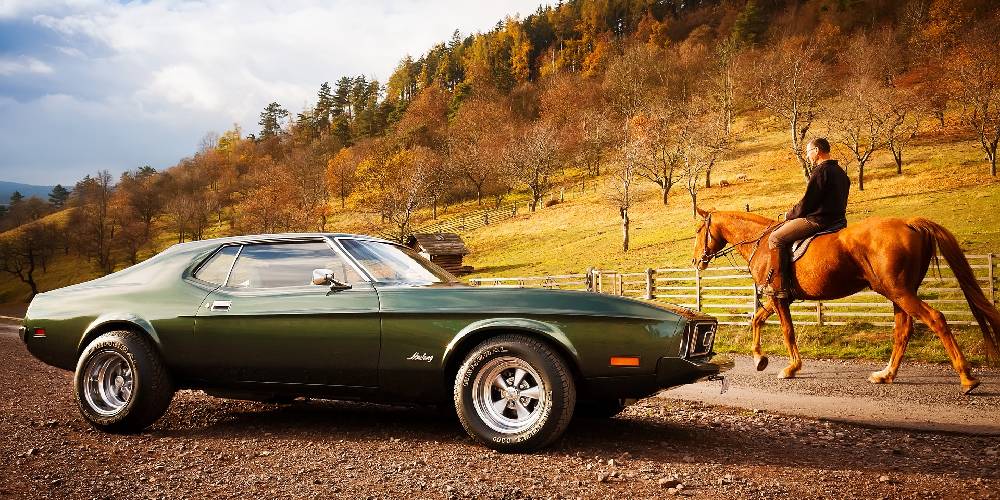This question was brought up to me by a friend and I have been wondering about it for some time. I know the rules about yielding to horses, but what happens if a horse jumps out in front of you? Would I still be liable if I hit a horse by accident? This also brought up the questions of horses and bicycles. Who yields to who and what happens if I were to hit and injure a horse while on a bike?
Who Is Liable If My Car Hits A Horse?
Because of the laws and rules put into place about yielding to horses, the person driving the car would be held liable and accountable for the accident. The reason for this is the fact that all motorized vehicles are required to yield to horses no matter the location or situation. If you were driving a car and didn’t yield to a horse crossing the road, you, the driver, would be at fault.
Who Is Liable If A Bicycle Hits A Horse?
Because of the rules when it comes to yielding, a bicycle must yield to a horse no matter the circumstances. With this being said, if you were riding a bike and started to cross the road with horses coming through and you happened to run into one, it would be you, the biker’s fault in this accident as you were supposed to yield to the horses.
Rules Of Yielding To Horses: Who Must Yield To Who?
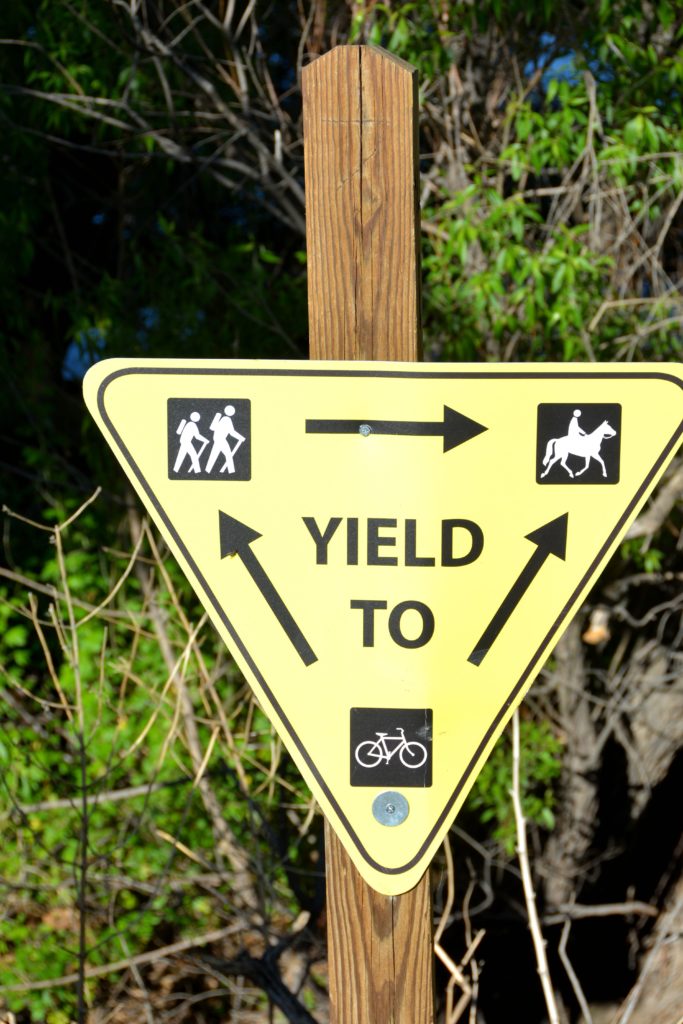
I know this might get kind of confusing, so I will break down the rules of yielding when it comes to horses and who must yield to who.
Cars & Horses: Who Must Yield?

Because of the rules set in place when it comes to yielding, cars are required to yield to horses no matter the situation. This means that the driver of the car must wait for a horse to pass in front of them before continuing on their way. Cars must yield to wild horses and domesticated horses alike whether the horses are being ridden, lead by a handler, driving a cart, or are loose.
The reason that cars, and other street-legal vehicles, must yield to horses is the fact that horses are easily frightened by the loud noises that these vehicles produce through their motors and engines. Stopping and waiting for a horse to go by and driving slowly next to them (if passing each other on a street or trail) is the best thing to do to decrease the chances of injury to the handler caused by the horse panicking or spooking at your vehicle.
Bicycles & Horses: Who Must Yield?
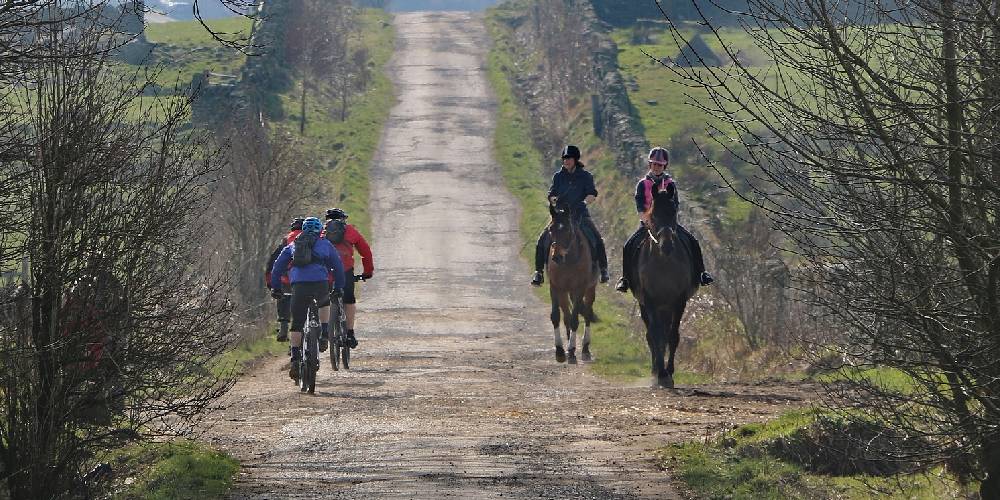
People on bicycles need to yield to horses whether the horse is on a trail, on a street, at a crosswalk, or even on a sidewalk. This is important to do as many horses are terrified of bicycles. Stopping and letting the horse go by before continuing is important so the horse doesn’t spook, panick, or bolt at the site of a bike coming towards them.
One example of why bikes must yield to horses is something that happened to one of the horses boarded at a barn I used to keep my horse at. The horse was an older gray Arabian that was used as a general riding horse. One day, she was being ridden down the road when someone on a bike came barreling towards her before crashing into the horse, injuring her. Since this happened, the mare has been used only as an arena riding horse as she is now deathly afraid of bicycles and gets very stressed and anxious when being ridden out. Had the person on the bicycle been more careful and stopped for the horse, this never would have happened.
Off-Road Vehicles & Horses: Who Must Yield?
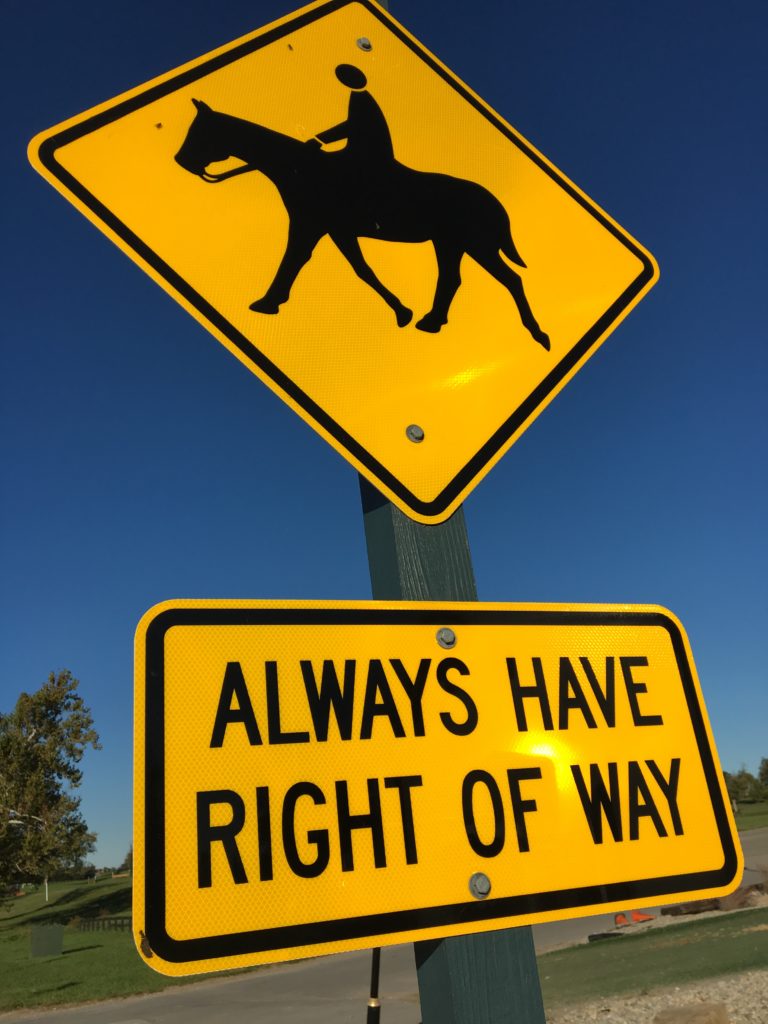
Off-road vehicles like quads, dirtbikes, ATVs, Razors, four-wheelers, etc. are all known to have loud motors. Because of this, it is extremely important that these vehicles yield to horses under every situation. Many trails that allow off-road vehicles also allow horses so be cautious when riding your vehicles as horses can have aggressive or violent reactions to these types of vehicles.
One example of a time that off-road vehicles should have yielded to horses is a trail ride I was going on with my friend. My friend and I were riding our horses through a trail in the desert that took us to a barn where we were going to ride our horses in the arena. It was in this arena that I got thrown over the horse’s shoulder at the canter and landed on my head and the back of my neck. Not long after I took this tumble, my friend and I thought it best to ride our horses back to her house and make sure that I wasn’t injured badly. We crossed the road without issues, but when we went back onto the trails to head back, we were met by five or six teenagers on dirtbikes.
A few of the dirtbikers took off through the desert further in front of us so we didn’t have any issues then, but when two of them came speeding up the trail towards us, it was not a fun time. Both of our horses started spooking and bucking and I ended up losing a stirrup. We waved our arms in the air and yelled at the bikers to stop. Thankfully, the bikers stopped their bikes, turned them around, and sped off in the other direction, but had they gone past us, our horses would have totally panicked.
Had these bikers been more careful and stopped to let us and our horses go past, there would have been no spooking and bucking.
Pedestrians & Horses: Who Must Yield?
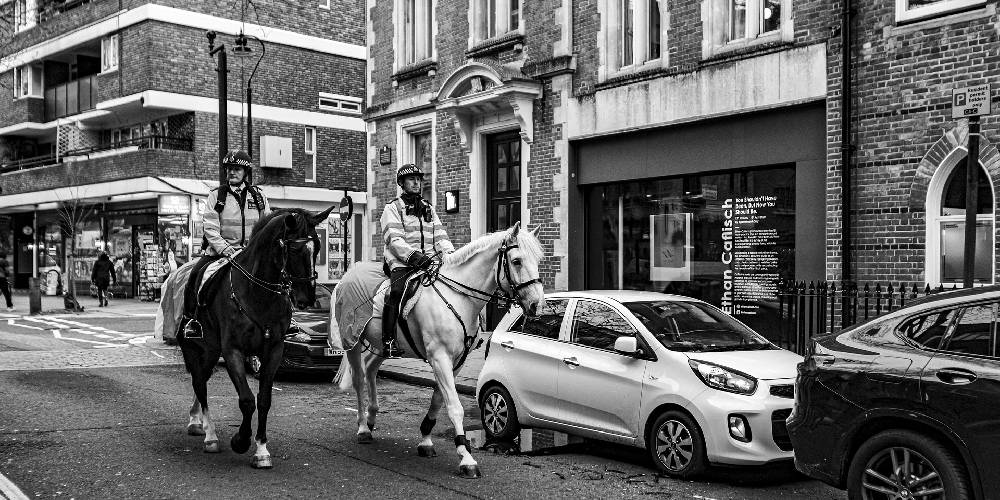
If you are riding your horse around people at a horse show, fairground, hiking trail, park, or street, the people around you must yield to the horses. The reason for this is that crowds can often scare horses and the surge of people around them can make them get anxious. People are required to yield to horses at all times no matter the situation. This is not only for the horse’s safety but also for the safety of the people and pedestrians on the ground.
I have seen a number of videos of police horses that need to get through a crowd. If the people don’t move for the horses, the horses can end up injuring and trampling bystanders. Yielding to horses is a rule for safety.

